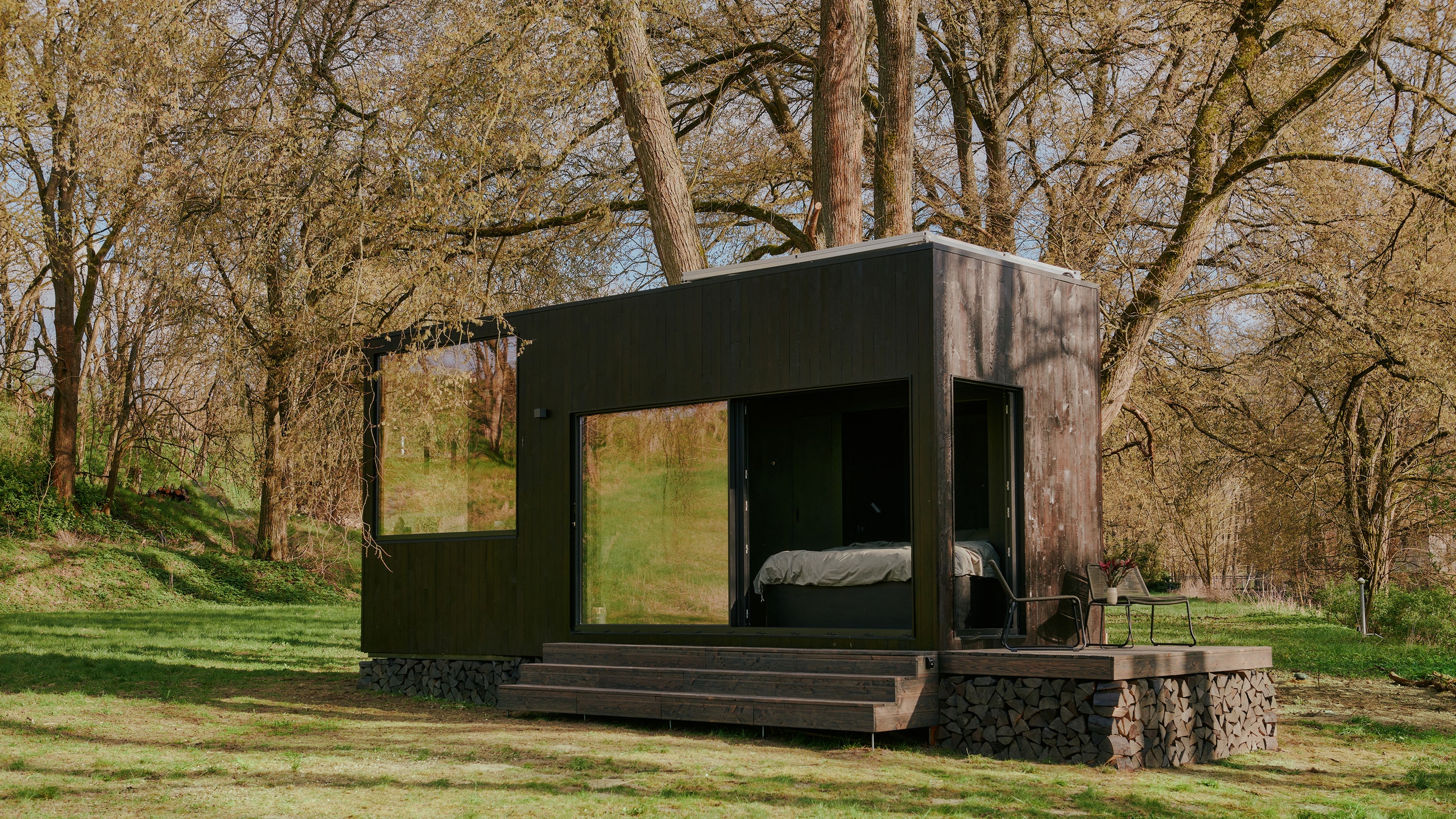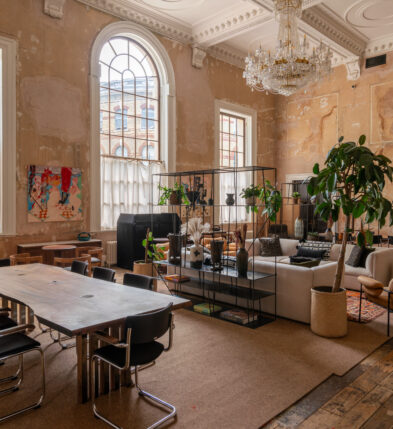The world of travel is undergoing profound change. Travellers today crave more than destinations—they’re seeking purpose, connection, and curated experiences that resonate deeply. At the FutureTravel Summit, founded by Ana Metz and in collaboration with EU Startups, industry leaders explored how innovation, sustainability, and community will shape the industry’s future. But the central thread throughout the day was clear: we’ve entered an era of “peak passion” and tech.
In the opening keynote by Tino Klaehne’s at Lufthansa Inovation Hub, he emphasised this very shift: “It’s about meaningful moments that connect us with our passions.” This sentiment underpins the industry’s evolution—from the rise of AI in trip personalisation to a stronger focus on sustainability and the changing role of hospitality.
Technology as the Ultimate Travel Enabler
Innovation is at the forefront of travel’s evolution, with artificial intelligence leading the charge. From planning and booking to the experience, AI redefines what’s possible.
For travellers, AI offers personalisation and at scale. Platforms like WeRoad use data to create itineraries tailored to individual tastes, while predictive analytics anticipate a traveller’s needs before they articulate them. Shannyn Timrott, Design Director from GetYourGuide, shared her enthusiasm for predictive analytics, saying that it helps the traveller and builds business for operators, so it helps the whole ecosystem. This blend of automation and personalisation creates seamless, stress-free experiences.
While AI enhances digital touchpoints, physical innovations like tech-enabled accommodations and urban data initiatives also revolutionise how travellers interact with destinations. Beyond AI, innovation is reshaping physical travel spaces. Julian Trautwein, CEO of Raus, offers tech-enabled cabins and shared that his business has no operations onsite. “Raus has a tech back-end and a nature front-end. Our cabins are 100% tech-enabled in the cloud, and land owners have access.”

Smart city initiatives like Barcelona’s La Rambla Observatory project create connected ecosystems that enhance tourism and empower local governments with actionable data. Created by Amics de la Rambla de Barcelona in collaboration with GetYourGuide, it exemplifies what can be achieved with tech to benefit multiple communities and stakeholders.
While technology empowers efficiency and connectivity, passion ultimately drives travellers’ choices. This has given rise to the booming experience economy.
Passion drives the experience economy
Today’s traveller is no longer content with cookie-cutter holidays. The experience economy is booming, with travellers seeking moments that connect them to their passions, interests, and communities.
Julian from Raus highlighted the shift in traveller behaviour, emphasising the importance of human connection in creating memorable experiences. Simple gestures—such as a friendly greeting or a personalised welcome note—can leave lasting impressions. While nature offers an offline escape that AI cannot replicate, technology is critical in streamlining operations and enhancing the booking process.
Tino Klaehne’s reference to ‘Taylor Swift tourism’ exemplifies this trend, where passion becomes the destination. For instance, the economic impact of three of her recent Vancouver shows alone is estimated at $157 million. Similarly, global events like the Paris Olympics showcase how cultural phenomena reshape travel itineraries.

Similarly, the rise of culinary travel and outdoor lodging speaks to a growing desire for authentic, immersive experiences. Inspirational Adventures allows users to design trips tailored to wellness and specific interests, from cycling and sailing to meditation and photography. These trends highlight a shift in travellers’ priorities: less about the destination and more about how it makes them feel.

Rethinking sustainability and purpose in travel
Sustainability is no longer an afterthought—it’s becoming a core principle for travel brands. At the summit, this theme emerged repeatedly as both a challenge and an opportunity.
SwiftON, by Cofounder Delphine Hatsadourian, is one of the start-ups pitched at the summit. The product is an innovative IoT device that hotels implement in the shower to help guests be more cautious of their water usage. The device is gamified and designed to help hotels reduce their water consumption and encourage visitors to be more proactive in supporting environmental issues. Delphine highlighted, “While 82% of travellers express a desire to travel sustainably, only 22% report taking action”, a problem SwiftON intends to resolve. The future of travel hinges on balancing profit with environmental responsibility.

Laura Martinez Celada, Owner of The Hotels Network, explained how her platform can quickly adapt to such shifts from a booking perspective. They have templates on the front end tailored to sustainability and branded as per the hotelier to create a themed experience in the booking process. This is implemented throughout the whole journey. Laura posed the question, where does the travel experience start? Is it from the booking or when you arrive at your chosen accommodation? Many agreed that it was from the booking, and she shared how personalisation can positively influence this, as it helps shape and set expectations.
This perspective underscores how personalisation and sustainability are no longer separate considerations but integral to the traveller’s journey. As sustainability continues to gain prominence, brands that seamlessly integrate it into every touchpoint—from booking to the experience itself—will lead the industry forward.
In this context, passion intersects with purpose. Community-driven solutions are gaining popularity, with travellers actively seeking brands that reflect their values. Whether staying in eco-conscious accommodations or participating in conservation projects, purpose-driven travel shapes the future.
Hospitality Reimagined
While technology enhances the guest experience, the heart of hospitality remains unchanged: delivering human-centred service. Julian stated clearly, “Hospitality is a people business”, and Niels Sauve the Chief of Digital and Technology Officer at The Social Hub reiterated, “Technology isn’t there to replace human experiences”. The challenge lies in balancing high-tech solutions with authentic human touches.
The Hotels Network spoke to this balance, emphasising how technology can streamline operations while preserving the magic of hospitality. “The best experiences are those where technology disappears into the background,” they noted, underscoring the importance of intentional design.
From AI-enhanced room personalisation to handwritten welcome notes, these details create a lasting impact on guests. The role of hospitality, then, is evolving: it’s no longer just about meeting expectations but about crafting transformative experiences.
The Biggest 7 Emerging Travel Trends
Nicolas Francisco Arroyo’s keynote at the FutureTravel Summit highlighted seven transformative trends shaping the future of travel. These trends align with the themes of passion, purpose, and technology that are redefining the industry:
1. The Healthy Traveller
Wellness-focused journeys prioritising fitness and longevity.
2. The Conscious Traveller
Regenerative tourism that respects local ecosystems and communities.
3. Slow is the New Luxury
Time and mindfulness as the ultimate indulgence.
4. The Borderless Traveller
Remote work and digital nomadism redefining global mobility.
5. Hyper-Personalised Travel
Data-driven customisation creating deeply personal experiences.
6. The Search for Awe
Transformative encounters with nature, art, and entertainment.
7. Craving Meaningful Connections
A growing desire for community-driven experiences.
These trends underscore the industry’s evolution, where technology enables efficiency, passion drives decisions, and sustainability ensures a purpose-driven future.
Conclusion: The Future of Travel
The world of travel is at a crossroads, where innovation, sustainability, and purpose are no longer separate conversations but interconnected pillars of its future. As the insights from the FutureTravel Summit show, travellers are seeking more than just destinations—they’re seeking meaning, connection, and the ability to leave a positive impact.
By fully embracing the power of technology, responding to the rise of the experience economy, and embedding sustainability into their operations, travel brands can not only meet but exceed the expectations of today’s purpose-driven traveller.






